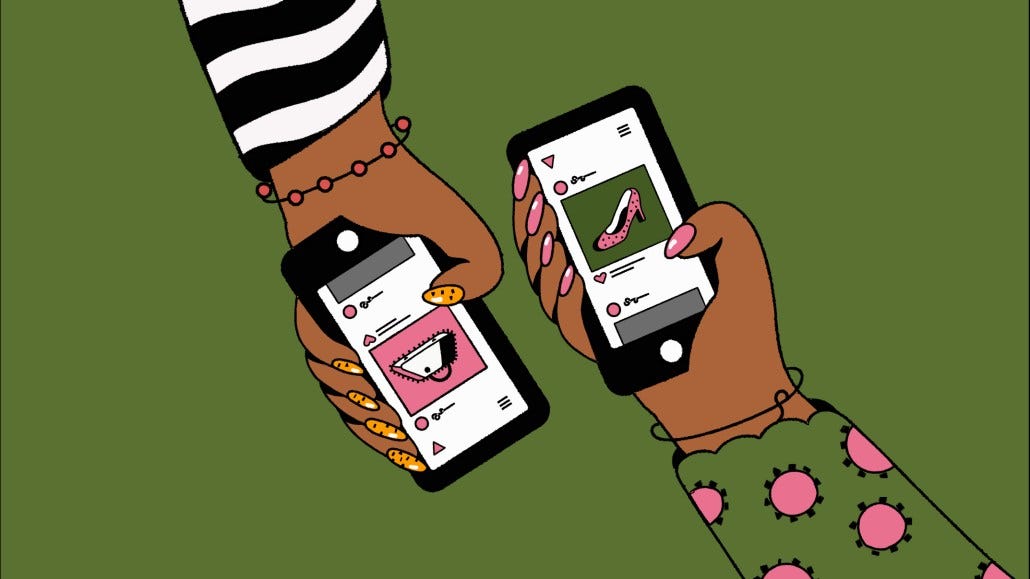The Next Big Thing in African Tech Is Niche Platforms Nobody Else Understands
Africa’s tech space has spent the last decade chasing scale, the kind that looks good on pitch decks, investor stages, and global headlines. Big user numbers, big markets, big categories. Social platforms that want to be everything for everyone. Marketplaces built to “unlock the continent.” Apps that promise to “solve Africa’s payments problem” in one sweep.
But the next era won’t be built on scale. It will be built on specificity.
Because the most powerful platforms emerging across Africa right now aren’t designed for the world.
They’re designed for the things only Africans understand — our consumption patterns, our cultural codes, our content formats, our social habits, our economic limitations, our creative expressions.
The next big thing in African tech won’t look global.
It might not even look big at first.
But it will be deeply, aggressively niche.
And that’s exactly why it will win.
Why Niche Is the New Power
Africa is too complex and too culturally layered to thrive on universal platforms. Global digital ecosystems flatten differences — they chase translation, scalability, simplicity.
African markets do the opposite. They reward specificity.
Think of how:
Kenyan comedy lives on YouTube but circulates more intimately through WhatsApp groups.
Nigerian music explodes on TikTok but monetizes through local live events, community fan groups, and diaspora leverage.
South African fashion content gains traction on global platforms but sells through hyper-local resale and micro-store networks.
Francophone African readers consume literature through serialized stories on mobile-first platforms nobody outside the region tracks.
These are not global behaviors.
These are African consumption pathways, and they need digital platforms built around them.
This is where niche platforms come in — not as supplements to global tech, but as the core infrastructure that understands African creativity and turns it into value.
Why Broad Platforms Can’t Serve African Creators
Global platforms optimize for three things:
Scale
Homogeneity
Monetization through global advertisers
African creators, however, need the opposite:
Targeted audiences who understand context
Spaces where cultural nuance isn’t an algorithmic disadvantage
Monetization models anchored in community, micro-payments, and hybrid offline-online value
On TikTok, a Somali comedy skit competes with a Korean dance challenge.
On Instagram, a South African fashion brand competes with a Paris influencer.
On YouTube, a Lagos documentary competes with a Hollywood trailer.
The algorithm doesn’t care about cultural context.
But African audiences do.
And when platforms are built without context, creators get reach but not revenue, visibility but not ownership, views but not value.
This is the gap niche African platforms are stepping into.
The Platforms Nobody Else Understands — But Africans Do
We’re entering a phase where the most important African tech platforms won’t be universal social apps, payment wallets, or super apps. They will be highly specific cultural tools, such as:
1. Micro Storytelling Platforms for Short-Form African Narratives
Think mobile-first fiction apps built around African serialized storytelling, dialect flexibility, community voting, and shared authorship.
These formats don’t scale globally.
They don’t need to.
They scale culturally.
2. Hyper-Specialized Marketplaces for African Creative Goods
Whether it’s:
Ankara resale
Digital fabrics
African photography
Local crafts
Indigenous typography
Amapiano sound packs
Afrocentric graphic templates
These platforms grow because they serve a creative identity, not a global market.
3. Video Platforms Optimized for Low Data and High Culture
Imagine video platforms built intentionally for data-constrained markets, where compression, offline caching, and community-first discovery create spaces for African formats like:
comedic skits
street-style interviews
short-form documentaries
local news commentary
regional language content
TikTok doesn’t solve that. Netflix definitely doesn’t.
4. Diaspora Bridges Only Africans Need
Niche communication tools connecting Lagos to London, Nairobi to Minneapolis, Accra to Toronto — through content sharing, small-group culture spaces, and diaspora-specific commerce.
Only Africans understand the need for this.
Only Africans can build this.
Why Niche Beats Big in Africa’s Creative Economy
1. The Market Is Not One Market
It is:
54 countries
2,000+ languages
100+ cultural clusters
Multiple content economies
Diaspora layers
Youth micro-cultures
Universal design breaks under that pressure.
2. Africans Don’t Consume Content Linearly
An idea travels through:
WhatsApp → TikTok → radio → Instagram → broadcast TV → Telegram → back to WhatsApp.
Global platforms can’t map this behavior.
Niche platforms can build directly for it.
3. Niche Is Where Revenue Actually Lives
Creators rarely make sustainable money from global algorithms.
African creators monetize through:
community-led support
small recurring payments
fan clubs
merchandise
offline events
premium content tiers
niche licensing deals
A focused platform can integrate these directly into the product.
4. Niche Platforms Build Cultural Ownership
Global platforms extract data, creative formats, and cultural styles without returning value.
Niche platforms keep cultural IP closer to the people who create it.
That’s power.
The Real Shift: African Platforms for African Problems
When African founders stop trying to build “the African TikTok” or “the African Shopify,” something transformational happens. They begin building platforms that don’t make sense outside the continent.
This is the breakthrough moment.
Because when your product cannot be copy-pasted into Silicon Valley, you are finally building something original.
Here’s what that looks like:
Platforms designed around low-data realities
Interfaces built around communal consumption, not individual feeds
Payments structured around micro-transactions and mobile money
Distribution models acknowledging that half the content flows through DMs
Tools built around dialects, slangs, cultural tags, and regional patterns
Monetization that understands event culture, diaspora culture, and street economies
This is African innovation at its purest.
The Global Industry Will Notice — But Only After Africa Wins First
Niche African platforms will do what global platforms cannot:
unlock new creative markets
generate hyperloyal communities
protect cultural IP
build new monetization paths
shift how African creativity circulates
give creators ownership instead of algorithmic dependence
And when they work, something predictable will happen — the same thing that always happens.
Global companies will suddenly “discover” the model.
But the real win is when Africans no longer need global validation to innovate.
When platforms are built for African consumption first.
When value stays inside the ecosystem.
When culture is not exported before being monetized at home.
That’s when Africa’s creative economy becomes unstoppable.
The Bet: Africa’s Next Unicorn Won’t Look Like a Unicorn
It’ll look like:
a fiction app
a creative marketplace with 12,000 loyal users
a video-sharing platform built around niche dialects
a diaspora bridge tool
a hyperlocal creator monetization platform
a tiny marketplace for African digital art
a specialized licensing tool for African IP
a micro-community platform for a single cultural genre
Small at first, obsessed, strange to outsiders, but essential to Africans.
Because the future isn’t mass adoption.
It’s deep adoption.
And deep adoption only happens when a platform knows its audience intimately — not as data points, but as cultural beings.
The Platforms Nobody Else Understands Are Exactly the Ones Africa Needs
Africa’s creative economy will not be built on global platforms.
It will be built on niche platforms that understand:
African behavior
African culture
African consumption flows
African creative forms
African economic realities
If global tech doesn’t understand it, that’s the whole point.
The next wave of African innovation won’t be universal.
It will be specific, culturally fluent, and proudly niche.
And that’s where the real power lies.
A guest post by
A curious mind exploring the crossroads of creativity and insight.






